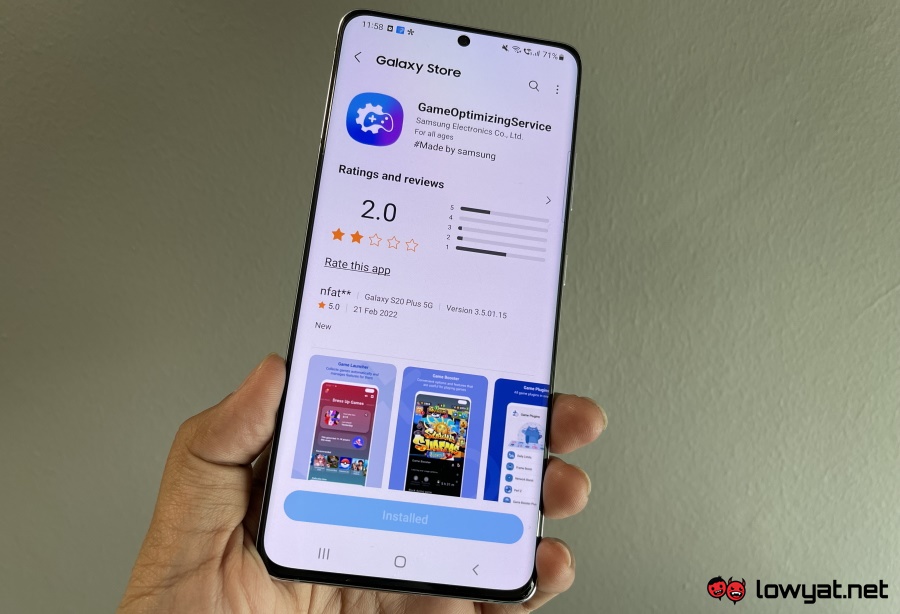Reports have appeared online which claims that the Game Optimizing Service (GOS) on Samsung Galaxy devices is putting a performance cap on not just games but also other types of app. According to a list posted by Twitter user @GaryeonHan which was apparently compiled by Korean users, there are more than 10,000 apps that have been targeted by GOS.
Interesting enough, quite a number of Malaysian apps have made their way into the list including the national COVID-19 app, MySejahtera. We don’t know how many exactly are there but we also noticed that CIMB Clicks and the classic Maybank2U app (not MAE though) are also there.

Other Malaysian apps that we have found in the list includes Touch ‘n Go eWallet, Boost, AirAsia Super App, Celcom Life, MyDigi, Maxis, Hotlink, MyUMobile, and MyTNB. Given what we’ve seen here, we do wonder if the popularity of these apps has something to do with their inclusion into the GOS list.
Samsung Galaxy Store describes GOS as an essential application that is powering some of the features provided by game-focused system apps from Samsung such as Game Launcher, Game Booster, and Game Plugins. Among them includes optimisation for thermal, memory, power consumption, CPU and GPU.

However, the way that GOS works seemed rather questionable. In a demonstration by South Korean YouTuber Square Dream using the newly released Galaxy S22 Ultra, he renamed the packaging name for the 3DMark benchmark to Genshin Impact and noticed the significant reduction in terms of benchmark scores as well as frame rate when 3DMark runs under the influence of GOS.
Similar experience has also been noted by users on the South Korean forum Clien although they were using Geekbench benchmark as opposed to 3DMark. Rumour has it that Samsung is already aware of this issue but nevertheless, we are now reaching out to the company to obtain further clarifications.
(Source: SamMobile. Thanks for the tips, @a_rosaceae!)
Follow us on Instagram, Facebook, Twitter or Telegram for more updates and breaking news.



